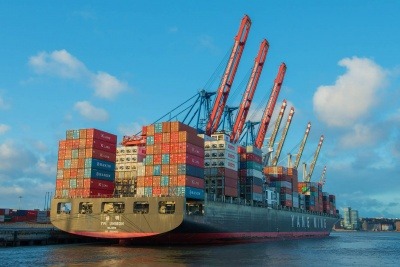India implements ban on imports of plastic waste
The Indian Government has banned all imports of solid plastics waste as part of a drive to tackle pollution and littering.
According to government figures, India itself generates 25,940 tonnes of plastic waste a day, 40 per cent of which remains uncollected. This comes from a study by the Central Pollution Control Board, as reported in The Times of India, which states that nearly a sixth of the total plastic waste generated domestically comes from 60 major cities, with the top polluter, Delhi, producing 689 tonnes per day.

Critics in India described this amendment as a ‘loophole’ that allowed for the import of plastic to grow exponentially in India. A Delhi-based environmentalist organisation, Pandit Deendayal Upadhyay Smriti Manch (PDUSM), claimed that imports of PET bottles to India actually quadrupled from 2017 to 2018. An environment ministry official reportedly told The Hindu in January 2019 that while the ministry couldn’t vouch for whether such plastic imports had quadrupled, it was true that imports had “substantially increased”.
The key event of the past year that has impacted the waste market in India is China’s ban (on the import of 24 grades of solid waste), announced in January 2018. China was previously the world’s largest importer of waste plastics, and its move to shut down that avenue sparked fears of stockpiling, leading to the rapid growth of alternative export destinations, especially in South and Southeast Asian countries. The UK’s plastic exports to Malaysia, for instance, tripled in the first four months of 2018 – though its exports of waste plastic to India are relatively small in comparison.
Following China’s announcement, a number of bans and restrictions have been implemented elsewhere, including in Malaysia, Vietnam and Thailand, in the face of a growing amount of low-quality imports from countries that previously exported to China.
“We can’t treat other countries as dumping grounds”

“India is a key market for our paper, for example, and it is vital that we do not treat these countries as dumping grounds, but trade a high-quality secondary commodity with them.”
Announcing the ban in India, the environment ministry said it was in part a response to the “huge gap between waste generation and recycling capacity” in the country. Many of the common export destinations for waste have poorly developed waste management systems, meaning that imports of foreign waste, as well as domestically generated waste, could potentially end up polluting the natural environment – being littered or burned – rather than finding their way to legitimate recycling programmes.
Moreover, the way the UK’s waste export system currently works means that there is little accountability for exporters – once packaging producers have procured a Packaging Export Recovery Note, the document that proves they have sent the waste to a recycler overseas, they do not need to provide further evidence about what actually happens to the waste when it arrives at its destination.
Building domestic markets
In response to concerns over the final handling of waste in these countries, calls have been made to put an end to the export of recyclable waste by the UK. A group of MPs recently proposed a ban on all plastic waste exports to developing countries, stating that ‘the government should not pass the buck to the Global South on plastic, instead dealing with our own waste on UK soil.’ Responding to that news, Ellin reiterated the importance of exports, saying that the UK is “something like an 80 per cent net exporter of plastics… If export is banned per se, it will decimate our industry; prices will crash and material will end up in landfill.”
An outright ban currently appears unfeasible due to the lack of domestic reprocessing infrastructure in the UK and the lack of demand for recycled materials. Industry figures have been keen to stress the importance of building home markets for recycled material to allow for the reshoring of recyclable waste and to encourage the take up of recycled material by UK manufacturers.
The UK’s Industrial Strategy, published in 2017, placed an emphasis on developing domestic markets for secondary materials, while a report produced by Eunomia Research and Consulting, commissioned by the Resource Association and WWF-UK, proposed a number of ways to stimulate a domestic market for recyclables, including a system of levies and rebates and material taxation.
The government's recently published Resources and Waste Strategy included several policies designed to improve domestic reprocessing capacity and demand for recycled materials, including a tax on the the manufacture and import of plastic packaging containing less than 30 per cent recycled plastic and reform of the UK’s producer responsibility regime for packaging. The latter which could see the introduction of a full net cost recovery system of extended producer responsibility (EPR), wherein producers would pay 100 per cent of the costs of collecting and recycling their waste packaging.
A new EPR system funded by producers could ease the financial pressure on local authorities, which currently shoulder 90 per cent of the costs of dealing with waste packaging – to the tune of £600-700 million a year – while dealing with budgetary pressures imposed by government austerity measures. A reformed system could also provide funding for improved reprocessing infrastructure, increasing the availability of recycled material for use in UK manufacturing.









